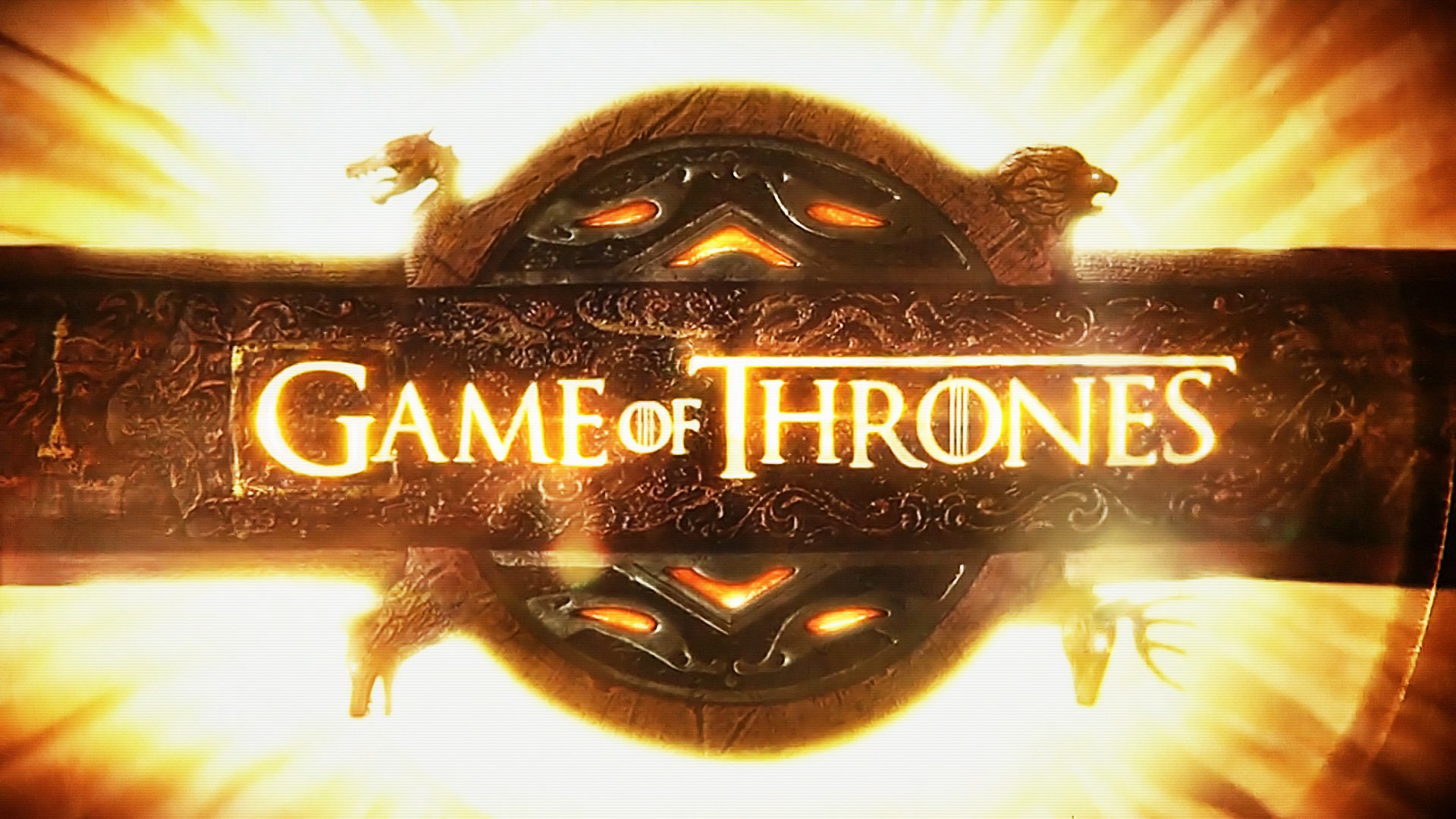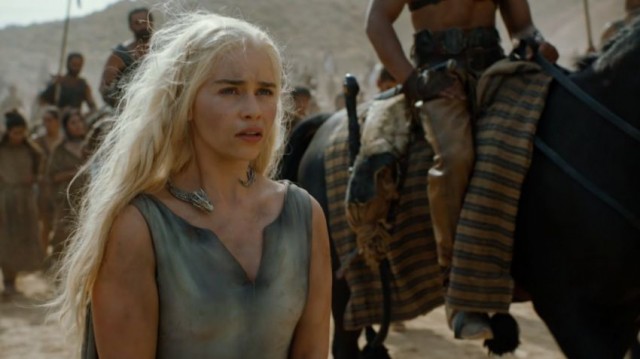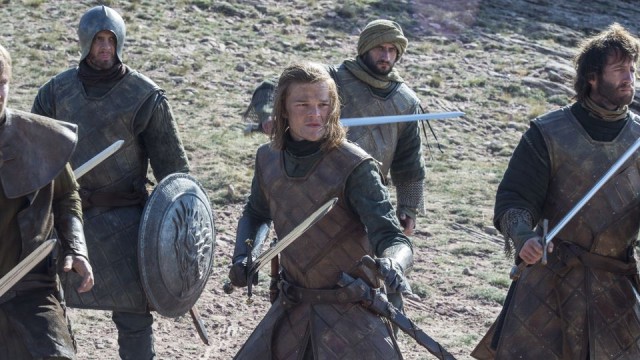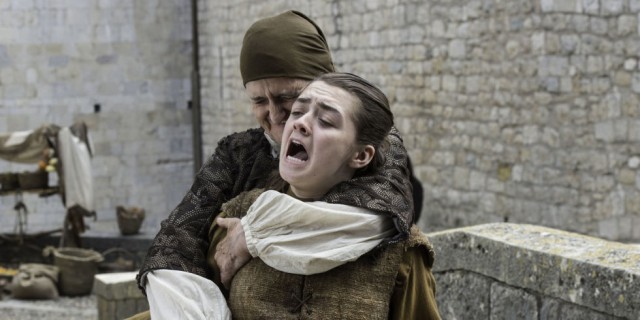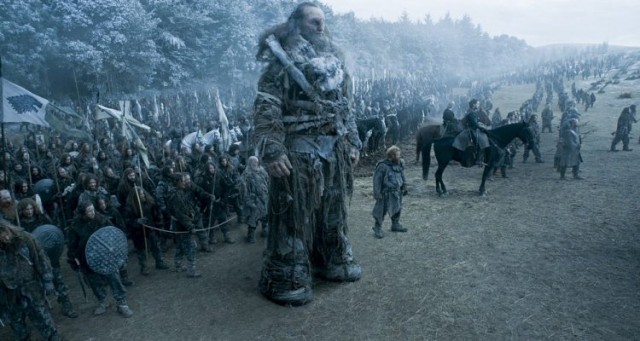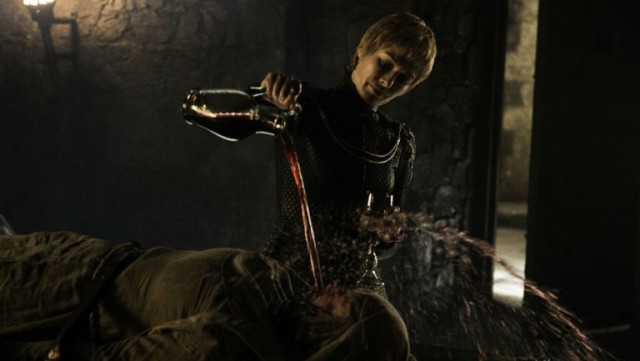NOTE: Spoilers from throughout the sixth season of “Game of Thrones” are present in this review
With this year’s airing of Season Six of Game of Thrones, the tales of Westeros officially ran out of source novels to adapt. With George R.R. Martin still toiling away on his unpublished sixth novel in the A Song of Ice and Fire saga, The Winds of Winter, Game of Thrones had to work with an approximate plot treatment of what’s to come in Martin’s epic fantasy tale, using the writers’ and showrunners’ own discretion with new character arcs, new storylines, and new ways to bring Westeros ever closer to its greatest war against the coming Winter and the White Walkers.
Fortunately, Season Six wonderfully rose to the challenge of pushing on with Martin’s saga ahead of the source novels for the most part, resulting in a season that didn’t feel like it lost any momentum in terms of violence, political intrigue and brilliant story turns. The character work was especially fantastic this season, with the factions moving into their final places as Winter finally arrives towards the end of this new batch of ten episodes, with the dust settling in King’s Landing seeing a particularly big shake-up, as Cersei Lannister sits on the Iron Throne by season’s end.
While some of the King’s Landing material dragged a bit this season (although the sluggish Dorne plot from last season was mercifully cast aside past the Season Six premiere), the end result of all of the King’s Landing material was worth it. The struggle against the Faith Militant came to a shocking and violent end, as a story thread from the very beginnings of the series, referencing the supply of Wildfire underneath King’s Landing’s streets, saw Cersei destroying the very Sept itself with one sudden, violent and destructive explosion, before her trial was supposed to take place! Not only were the High Sparrow, now the High Septon, Lancel Lannister, and the entire Faith Militant forces all killed, but so were Margaery and Loras Tyrell (along with Grand Maestar Pycelle, thanks to Qyburn), which in turn drives King Tommen to commit suicide. In one bold move, Cersei seized the Seven Kingdoms, and with all of her children now dead and buried, she’s become more dangerous than ever, which was an excellent way to end the season!
Another particularly great story element this season was most anything to do with the Stark children. Jon Snow did indeed live again after being murdered at Castle Black by dissenters at the very end of Season Five, thanks to some dark sorcery from Melisandre. He also allegedly sees that all the world’s gods and faith are a lie in the allegedly non-existent afterlife (although this claim about no afterlife is thrown into question during Bran’s arc later), though it turns out that reuniting Jon with Sansa and taking him out of The Wall and away from a faith system was definitely the right call for the storyline. This meant that the show pretty much abandoned the Night’s Watch this season, past the first couple of episodes, but that’s fine, since it allowed the series to focus on the incredible effort to re-take Winterfell.
Like King’s Landing’s end result, the actual rise and fall of Ramsay Bolton, who murders his father, Roose, as well as Roose’s wife and other son in order to seize House Bolton, was another of the best parts of Season Six. Ramsay appears to be fearsome and unstoppable for most of the season, but it’s thanks to Jon’s courage and Sansa’s wisdom that they eventually rally enough forces to re-take Winterfell, in a joint effort with the Northern houses and the Knights of the Vale, which unfolds in one of the season’s most excellent episodes, “Battle of the Bastards.” Sansa leaves Ramsay to be eaten alive by his hungry hounds in a fitting bit of revenge (in turn also avenging Ramsay’s murder of Rickon and Osha this season), and Jon is named the new King in the North, seemingly to the discontent of Sansa and Littlefinger. As great as it is to see Winterfell finally be under Stark banners once again, the effective mirroring of Jon’s declaration with the ill-fated declaration of his brother, Robb was superb. It suggests a potentially ominous turn for Jon in Season Seven next year, just in time for word to come that Winter has arrived, and that’s very promising.
Yet another big highlight in Season Six is that we finally got to reunite with Bran Stark, who has been training off-screen with the Three-Eyed Raven throughout all of Season Five last year. Bran begins to see glimpses of his father’s youth after wandering into the past, but this is somewhat interrupted when a mistake by Bran leads White Walkers to the Three-Eyed Raven’s dwelling. The Three-Eyed Raven dies during the attack, as do several Children of the Forest (who were revealed to be the creators of the White Walkers in a misguided attempt to stop mankind from destroying the wildlife), and even Hodor is killed as Meera carries Bran away, with his odd mental state being revealed as Bran inadvertently making Hodor, then going by his birth name, Wyllis, glimpse his death in the future, as Bran mentally commands him to, “Hold the Door!”, forcing Wyllis to repeat the command in the past until it garbles and permanently becomes the one word he can say, “Hodor.” This was easily the saddest scene of Season Six, and one that birthed no shortage of annoying internet memes, but the tragic reveal that Bran was the one responsible for Hodor’s mental collapse was yet another fantastic twist this season, even if it does give away a major twist in upcoming novel, The Winds of Winter.
Bran was also used as a vehicle to answer two other lingering fan questions this season, aside from the meaning behind Hodor’s name, even if fans might have guessed some of the twists behind them. At last, Benjen Stark returned to the show, ahead of a similar re-introduction that’s planned in The Winds of Winter, and is revealed to have survived a White Walker attack, having been rescued by the Children of the Forest. Benjen tells Bran a bunch of knowledge about the White Walkers off-screen, leaving him to likely become one of the key players of the coming Winter in Season Seven, though regrettably, Benjen doesn’t join his company. The return of Benjen could have had a bit more fanfare, but Bran’s revisiting of the Tower of Joy in the past eventually made up for that, as Jon’s true parentage was eventually revealed! As many fans speculated, Ned is not actually Jon’s father, but his uncle, since Jon is the son of Ned’s late sister, Lyanna Stark, who died in childbirth after entrusting Ned with the safety of her infant son, whom she didn’t want anyone to know the secret of. While the show didn’t directly reveal Jon’s father, HBO later released an official allegiance chart that seemed to out Jon’s father as Rhaegar Targaryen, confirming the fan theory that correctly guessed Jon’s real parents. This twist could actually mean that Jon could marry Sansa, since they’re cousins and not siblings, though I’m not sure if the show will ultimately go this route, or hitch Jon up with Daenerys in the end.
Speaking of Daenerys, she’s finally making her way to Westeros at the end of the season, after talking about it for the entire show’s run to date! The Daenerys material was sometimes a little mixed, but as with the King’s Landing material, the end result was entirely worth it! Seeing Daenerys seize the Dothraki forces by burning the Khalasar alive and emerging from their burning hut unscathed was a superbly powerful moment, as was Daenerys using her dragons to lay waste to the masters and permanently destroy slavery in Essos. The parallels to Daenerys and Cersei, who both quashed their opposition in one (in Daenerys’ case, two) mighty show of force is interesting, and the season ending with a look at Daenerys, Tyrion, Varys, Missandei, Grey Worm, The Unsullied, and The Dothraki all sailing to Westeros together (along with Theon and Yara Greyjoy, who form an alliance with Daenerys after their uncle seizes the Iron Islands and kills their father), presents just as much promise for Season Seven as Cersei sitting on the Iron Throne. Daario sadly had to stay behind, but this was just another way to show how much Daenerys has matured since her time ruling Meereen, and building her campaign to take the Iron Throne since the latter part of Season One.
Naturally, there were some smaller plots beyond these major arcs in Season Six, though a few of them ended up feeling a bit inconsequential, and this was evident around the sixth, seventh and eighth episodes of the season, which led to a less interesting, plodding stretch for a few weeks, unfortunately. Arya’s storyline in Braavos had some initial intrigue, but it was resolved too easily, and had Arya left to be a quick, convenient plot device in which to suddenly appear and murder Walder Frey at the end of the season. A darker turn for Arya’s character is intriguing, but for the most part, Arya was disappointingly overshadowed by the other storylines this season. Likewise, Jaime goes to Riverrun in order to oust The Blackfish from the Riverlands, but again, this storyline is resolved too easily, with The Blackfish annoyingly dying off-screen, and Jaime just returning to King’s Landing in time to see Cersei get crowned at the end of the season. As interesting as it initially was to get Jaime out of King’s Landing again, this storyline just didn’t serve any purpose. The same is also true of Samwell Tarly and Gilly finally reuniting with Sam’s family, which only ate up screentime, and left off with the two being deposited in The Citadel, and not doing much else. The whole point of this storyline is that Sam’s father is kind of a dick, and that’s it. No other consequences were had. That’s a let-down.
The biggest misfire of the otherwise great Season Six however, was the re-introduction of The Hound, who might as well have been held for Season Seven. The Hound is revealed to be alive, and living with a peaceful settlement run by Ian McShane’s mysterious character, Brother Ray, though the settlement and Brother Ray are all suddenly massacred off-screen in the same episode (marking a complete waste of Ian McShane), and The Hound just ends up lingering as the Brotherhood Without Banners asks him to join in order to apparently fight the White Walkers. That’s it? Considering all of the squeamish use that Cersei put The Mountain towards over in King’s Landing this season, The Hound just came off as tired and apathetic in comparison, and so did his storyline. Hopefully, he achieves better things in Season Seven.
Still, Game of Thrones proved this season that it doesn’t need source text to succeed. The vast majority of the show’s storylines this season remained immensely appealing, and the way that the season ended has the show effectively moving towards a sharp and exciting climax over the planned Season Seven and Season Eight. These final seasons will apparently have less episodes than the usual ten, but that’s alright, since the pieces seem to be in place for a spectacular finish, as Winter arrives, and the undead with it!

